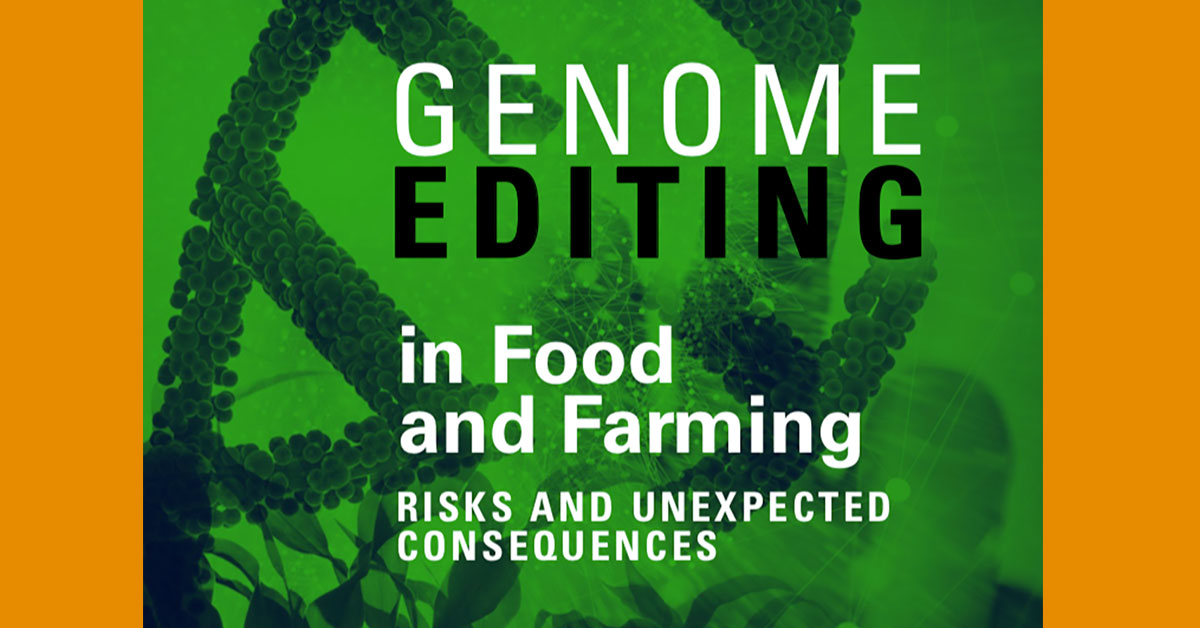
Rigorous regulation and labelling needed
A new report by the Canadian Biotechnology Action Network (CBAN) provides an overview of the new genetic engineering techniques of gene editing that are being explored in agriculture, and the range of risks and potential unexpected consequences that can arise from them.
The purpose of our report is to support public discussions about the possible implications of using genetic engineering in food and farming. How should new genetic engineering technologies be used, and how should decisions about them be made?
The core message of the report is that gene editing is genetic engineering, and that the process of gene editing creates genetic errors, leading to unexpected effects. Thus it should be rigorously regulated via thorough risk assessments and its products must be labelled.
In addition, the report advises that
* The utility and social worth of using genome editing techniques to develop new crop plants, animals, and other organisms for food and farming need to be evaluated. Farmers and other members of the public should be consulted in the process of evaluating risks and benefits.
* Governments should support the tremendous wealth of genetic diversity, and the tools and knowledge held by farming communities, by investing in agroecology.
* There needs to be a global moratorium on the release of gene drive organisms.
Click here to download the full report.
Click here to read an introduction to gene editing.
The report is timely for people in the UK and the EU, where lobbyists are busy trying to persuade decision makers to de-regulate gene editing.









